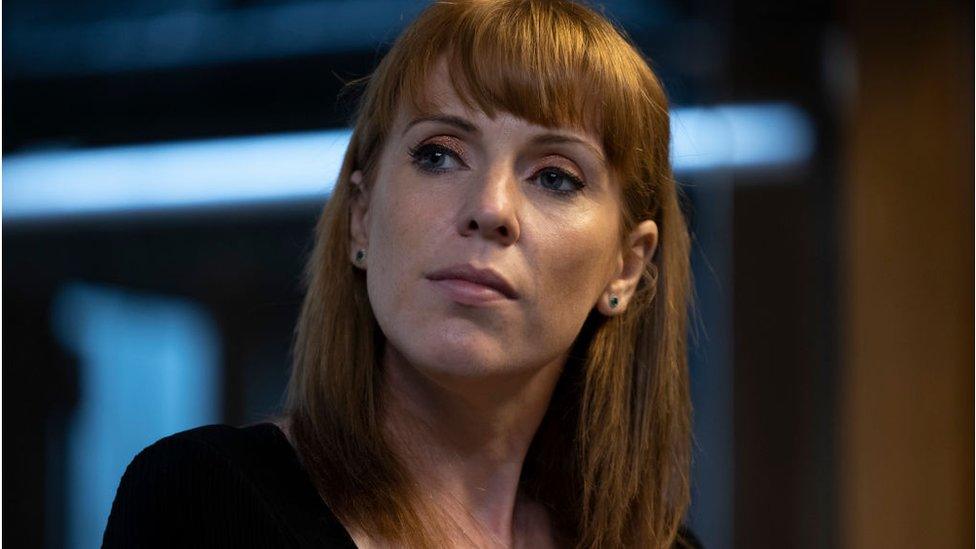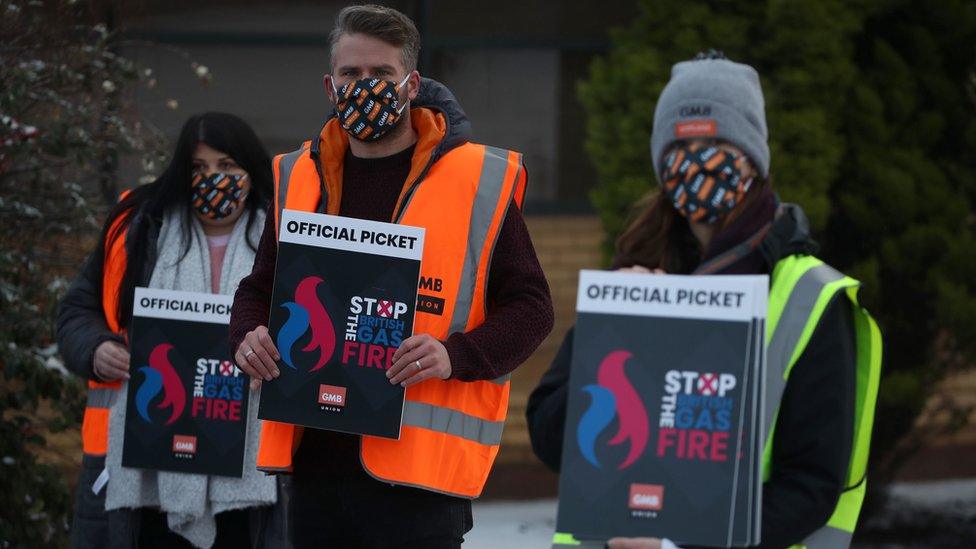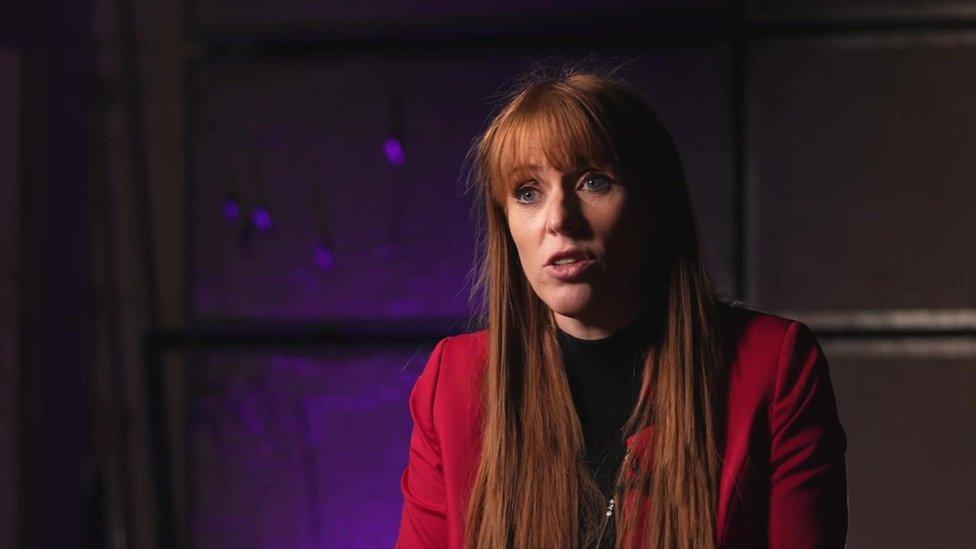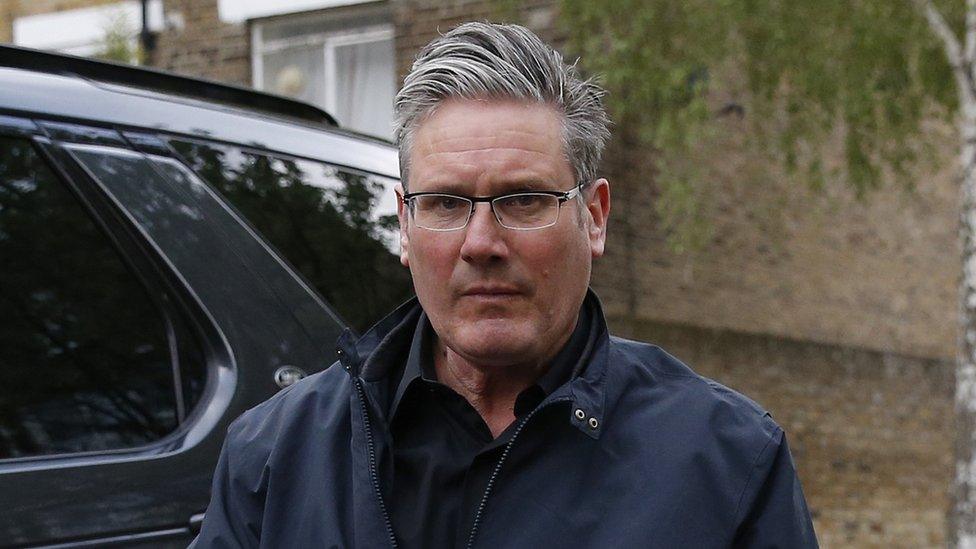Give workers full rights from day one – Labour
- Published
- comments

Workers should be given "full" employment rights from day one, Labour has said as it announces plans to "fundamentally change the economy".
Currently some rights - such as being able to request flexible working - only kick in at a later stage.
Labour is also calling for a ban on "fire and re-hire" practices.
Minister Amanda Milling said the government had provided "unprecedented" support to workers during the pandemic through the furlough scheme.
The lifting of Covid restrictions has sparked a debate about inequality and the future of work in the UK.
Labour's deputy leader Angela Rayner said Britain was "at a fork in the road" as the country emerges from the pandemic.
And Labour leader Sir Keir Starmer argued that the pandemic had revealed that "millions of workers don't have the dignity and security they deserve from their job".
Labour also points to research conducted by the TUC, external that found one in nine workers - 3.6 million people - had no pay or job security and three quarters of those on zero-hours contracts lost shifts during the pandemic.
Under proposals for a "new deal" for workers, Labour says staff should be given full rights from their first day of a new job.
Currently there are some entitlements which do not come into force until a worker has been in a job for a certain period of time, for example statutory maternity pay, adoption, paternity and shared parental leave, and the right to request flexible working.
Labour also says it wants to outlaw "fire and rehire" practices whereby employers dismiss workers and then offer to hire them back under new, often poorer, terms and conditions.

British Gas workers protesting against fire and rehire practices
The tactic has been around for decades, but has come to prominence during the pandemic as high profile companies have tried to make use of the procedure.
The party also says it would introduce a "real living wage" of at least £10 an hour, create "tens of thousands of apprenticeships" and implement "a level playing field on tax between multinational giants and local businesses.
Asked about the party's own workforce, Ms Rayner acknowledged it was a "very worrying" time for staff who were being asked to take voluntary redundancy.
She said Labour was in "devastating circumstances" having lost general elections and resources and wanted to "change the way we do our work like any organisation goes through those times".
"We want to make sure that the Labour Party is in a very lean, fit position to go forward to win the next general election," she added.
'A broken model'
After the party's poor results in the English local elections in May, Ms Rayner was appointed to a new shadow cabinet role with responsibility for policies on the future of work.
She said the party wanted "good quality jobs" that pay a "proper wage that people can raise a family on".
Angela Rayner says Labour wants to give people more rights to work from home and with flexible hours.
"Under the Conservatives we have a broken economic model defined by insecure work, low wages and in-work poverty and a lack of opportunity for people who want to get on and find good work to support themselves and their families."
Amanda Milling MP, co-chairman of the Conservative Party, said the government had brought in an "unprecedented" furlough scheme which had paid the wages of 10 million workers during the pandemic; in addition to increasing the National Living Wage and "taking millions of the lowest paid out of paying income tax".
She added: "While Labour carp from the sidelines, we're continuing to support business while taking the tough decisions needed to rebuild from the pandemic and protect people's jobs and livelihoods."
A spokesperson for the businesses organisation the CBI said it agreed with Labour's "ambition to create an inclusive economy" but it viewed many of the proposals as "overly prescriptive".
"With skills shortages already beginning to bite across many sectors, making it harder for firms to hire could also put a handbrake on economic recovery", they added.
Earlier this month, the prime minister set out what he called the "skeleton" of a plan to "level up" the country by spreading power and opportunity more evenly.
Ministers say it involves investing in transport, skills and businesses to address regional disparities, with more details expected in September.


The 'future of work' is part of Angela Rayner's expanded portfolio following the reshuffle of Labour's front bench.
Behind the scenes she has worked closely with shadow employment secretary Andy McDonald - who also served on Jeremy Corbyn's front bench - on policies designed to strengthen workers' rights.
They think this could appeal to more than three and a half million employees.
Today's package brings together some of the policies that the trade unions have been pressing for, particularly on the security of work.
It is a long way from the Blair era's flexible labour markets.
The policies were endorsed today by Keir Starmer, external but some will see the package as proof of Angela Rayner's influence.
Had Labour lost the Batley by election, a number of MPs would have pushed for her to challenge for the leadership.
While that's off the agenda for now, she will be the face of policies that are popular across the trade union movement and amongst many in the grassroots.
When it comes to her own future, if she has ambitions which go beyond being her party's deputy leader then today's announcements could be helpful.
But many in the party are also keen to see more ambitious plans emerge from the recently-announced policy review to tackle the challenges to the world of work from automation, AI and climate change.

Related topics
- Published18 June 2021

- Published11 May 2021

- Published9 May 2021
- Published9 May 2021
